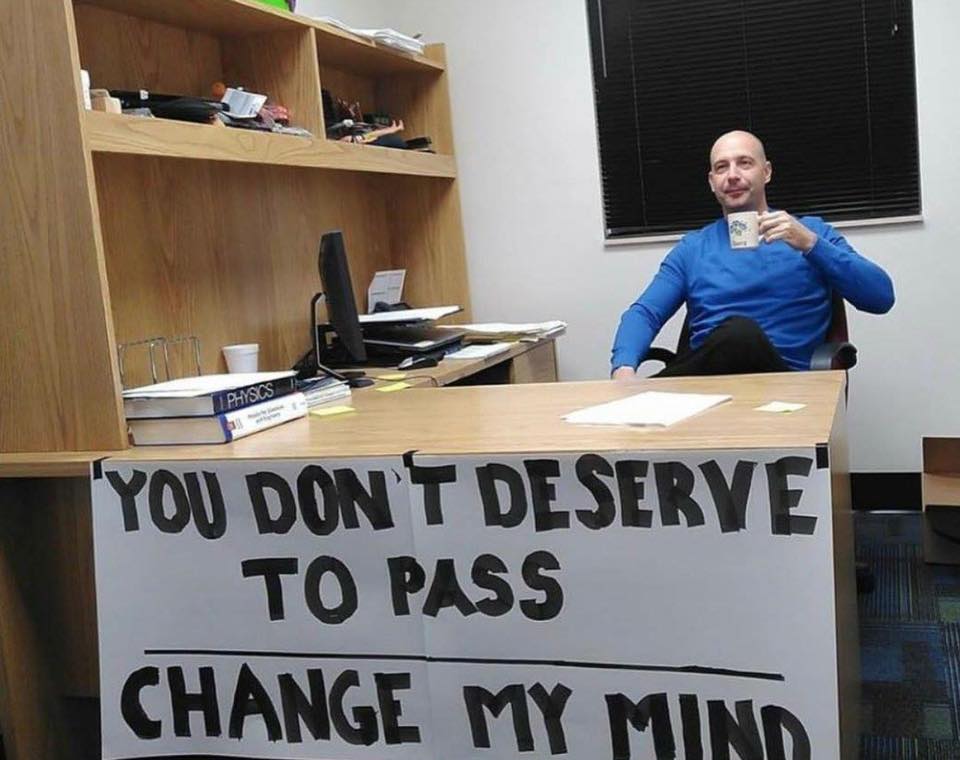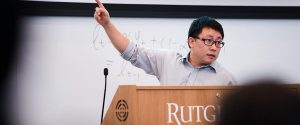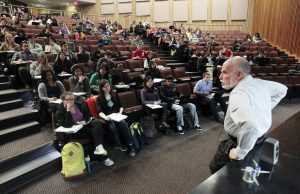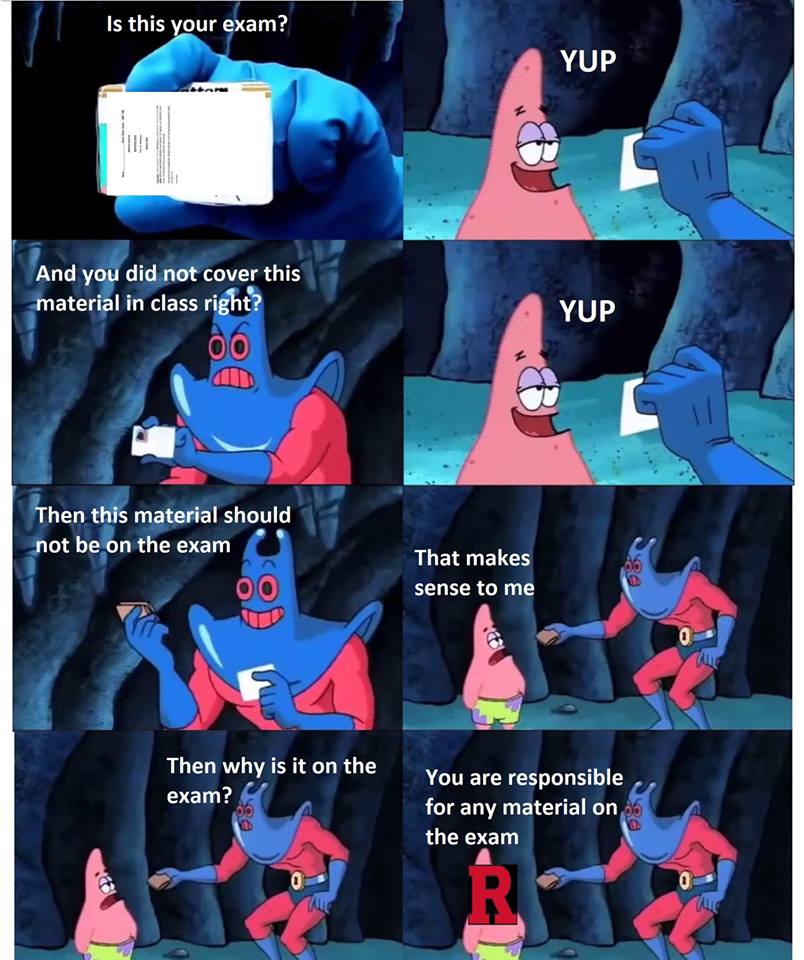
The teaching experience at Rutgers University has been completely revolutionized with the introduction and integration of technology in the classroom. How our faculty grapples with technology as an educational aid and potential distraction constitutes a major challenge at the core of modern education. Here at Rutgers, programs like Sakai and Blackboard, computers and cell phones, online notes, clickers, and databases have all drastically changed how education is administered. We compiled research, examined archives and conducted interviews to understand how the technological age has influenced our professors.

Professors are largely impacted by how Rutgers decides to implement technology. From their pay, to their class scheduling, to their parking passes, Rutgers continues to find new ways of innovating the technology that impact their faculty. The systems that come in and out of their lives as instructors often shapes their opinions on the functionality of the systems they become accustomed with.

Because of their unique position as instructors, they can observe changes not only with the campus itself but also with their own students. The faculty on campus are an integral part of the Rutgers community that have their own internal grapples with technology and how they choose to implement it into their classrooms.
Table of Contents
Attitudes and Concerns
Note: Audiovisual embed removed pending attempt at recovery.
Dr. Burgis on Sakai and how it can be a beneficial tool and yet it can create inconveniences for both professors and students. Grading from the professor perspective comes new feats, especially when the system does not do everything it is expected to do.
Note: Audiovisual embed removed pending attempt at recovery.
Dr. Burgis on RCM and Infosilem and the depersonalization from the systems attempting to improve time management of university planning. While the system and its operators may find it to be a helpful tool for accommodating various schedules, the faculty is losing out on the human interaction from their departments. Dr. Burgis says it best when she says, “You can’t bring cookies to Infosilem”.
Note: Audiovisual embed removed pending attempt at recovery.
Dr. Burgis on concerns for the classroom. While some students need human interaction in order to learn, the constant technological advancements begins to displace that preference.
Rutgers has made a large effort to stay current with their technological systems. Over the past decade there has been rapid adoption of several new systems that have had a direct impact on the faculty members that have to use the m to administer their courses. Sites like Sakai and Blackboard are the linchpin of course administration and provide the main point of contact between faculty and students. With this rapid adoption, there has obviously been some bumps along the way. We aimed to examine the reactions of our faculty to the ever changing technology in the classroom and gather their thoughts on its advancement.
Note: Audiovisual embed removed pending attempt at recovery.
Dr. Agre on how RCM and Infosilem could be beneficial because of efficiency. She argues that because the university is so large that we need uniformity. There is leeway at the school and department level that will make the system maintain human qualities of flexibility but still will provide the necessary conformity that the ever-expanding university desperately needs.
Stein’s opinion on RCM. She argues that the services such as RCM cut out the necessary human interaction for coordinating large amounts of scheduling necessities and preferences.
Stein on Sakai being terrible. Lists slowness of upload and download time when trying to grade or hand out assignments via Sakai is less than adequate.
Note: Audiovisual embed removed pending attempt at recovery.
Dr. Agre on how the future of classrooms might be beneficial to move away from individual work and toward group computing. This would not require large technological tools to implement; it could be simply for how we set up our classrooms to encourage inter-student learning.
Note: Audiovisual embed removed pending attempt at recovery.
Professor Clarke on how Rutgers makes changes when systems are not ready.
Note: Audiovisual embed removed pending attempt at recovery.
Professor Clarke on the future of classrooms and teaching. Clarke predicts that teaching will increasingly move away from face-to-face interaction and toward technological innovations to solve issues such as buses or class scheduling but has no desire to teach any type of course through an online medium.
Human Nature Being Altered
The student-professor relationship has changed drastically with the introduction of technology. Notes are often taken on laptops, course slides are posted online and email can provide instantaneous communication. With that, cell phones often provide distraction and students can take advantage of online attendance measures. Our data exams how technology has changed human relationships in the classroom and how teachers have managed it.
Stein on how laptops and smartphones being taken away can make students anxious. Banning technology is not the solution to issues that arise from technological advances so by not incorporating new technology into the syllabus, students will not be able to adapt to the changing world around them.
Stein on how technology makes students unable to communicate properly. Technology provides a dichotomy of emotions where it can become a necessity and a distraction in terms of communication.
Stein on the flaws of Online dating. Although it is intended for convenience, online dating perpetuates a falsehood of not chemically needing physical human interaction.
Note: Audiovisual embed removed pending attempt at recovery.
Professor Clarke on how students are too dependent on Sakai notes. “[PowerPoints] encourages [the students] not to think” – Professor Clarke.
Sociology Professor Karen Cerulo spoke about the hardships of enforcing limitations on laptops in a classroom settings. While it can be a beneficial learning, experience, it comes with its challenges. The line of respect in the student and teacher relationship is altered through technological convenience. While technology can be a tool for education, it can decimate human expectations of respect and courtesy.:
“One of the things I tell students is if they’re sitting in class and they’re reading e-mail or the newspaper or sleeping, then they might want to stop and think about how they would feel if they came to my office hours and I did that to them. It’s a case of courtesy that students don’t intentionally violate, but do,” Cerulo said
Rogers, D. (2009, March 31). Laptops deemed beneficial to classroom experience. Daily Targum. Note: original URL unavailable.
Technology Has No End-Game
Rutgers has made increasing efforts to stay ahead of the technological curve. This has lead to rapid adoption and consequent renouncement of several different systems. We took a look at how the fluid nature of technological advancement affect the academic process and how our faculty members have handled and adapted to it.
Note: Audiovisual embed removed pending attempt at recovery.
Dr. Agre on how technology has made data gathering much easier. Intra-university coordination was originally necessary for pulling necessary research data but online collections have made it easier to congregate relevant data is a fraction of the time.
Note: Audiovisual embed removed pending attempt at recovery.
Professor Clarke on using computer cards for his PhD.
Note: Audiovisual embed removed pending attempt at recovery.
Professor Clark on how technology was back when he was a student.
Stein on Publisher platforms replacing Sakai. She explains how it creates a ‘passive’ learning culture where students take reading online content provided by these platforms as studying instead of the traditional ‘active’ learning approach through pen and paper.
Note: Audiovisual embed removed pending attempt at recovery.
Dr. Agre on on the transition from handouts to Sakai creating better availability to notes and handouts to students.
Moving platforms from Sakai to Canvas may be a new shock to the student body in 2018, but 2005, Rutgers underwent a change to consolidate the platform from four down to one. Technology will constantly evolve into new systems because there is no perfection when it comes to technology. The competition of online platforms for course administration is so fierce that each service system becomes indispensable and subject to the highest bidder.
“The University currently has four main course management systems in use, and if the University goes with one system it will most likely be one of these – WebCT, Sakai, eCollege/eCompanion and Blackboard.” – The Daily Targum
One course companion. (2005, October 19). Daily Targum. Note: original URL unavailable.
What Technology Cannot Replace
Even with the advancements of technology over the years, the human element in the classroom still remains the most crucial part. We spoke to professors about the human element that remains in the classroom, what can still be replaced and what will remain impervious to technological encroachments.
Stein on how ‘barebones’ teaching is better than technology in the classroom. She discusses her time at a seminar where they argue that there is something that is highly important about a physical instructor without any technological aid is better for teaching students.
“While we think that there are benefits to online instruction, we do not feel that they can or should replace the physical classroom experience. At most, Internet classes should be used as supplements, not as substitutes.” – The Daily Targum
Web courses cannot replace classrooms. (2011, April 13). Daily Targum. Note: original URL unavailable.
We collected interview information by conducting our own interviews through audio and visual means and also collected textual interviews from the school newspaper, the Daily Targum. The insights that these professors highlight are not monolithic. The technology that the Rutgers faculty utilizes in their job has a variance of opinions. While some appreciate the conveniences that technological tools bring, others find that it is beginning to eliminate the core aspect of what it means to be an educator. The future of education is yet to be determined while we are all experiencing major technological changes into the world of education.

